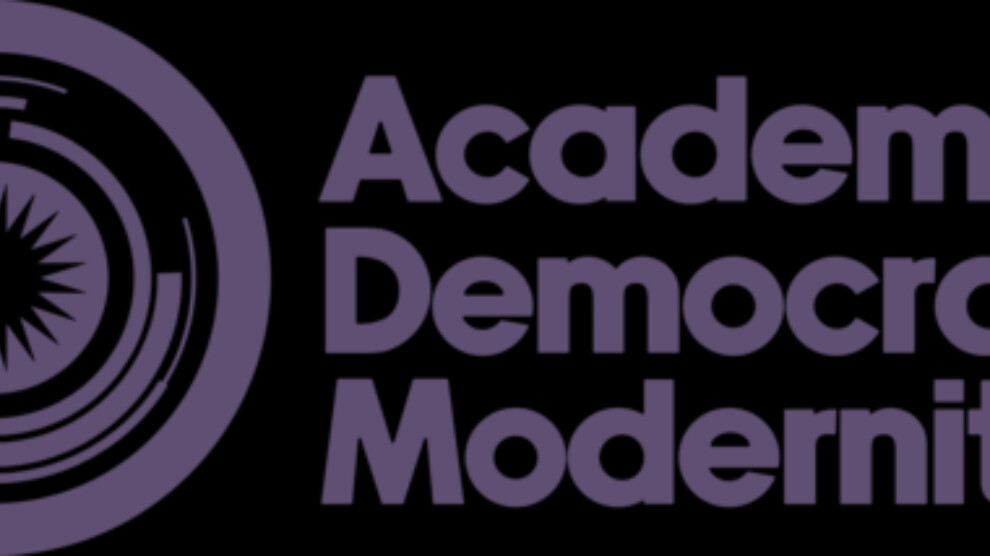Democratic modernity paves the way for democratic socialism
Mexican anthropologist Gilberto López y Rivas, wrote about democratic modernity paving the way for democratic socialism.
Mexican anthropologist Gilberto López y Rivas, wrote about democratic modernity paving the way for democratic socialism.

The Academy of Democratic Modernity (ADM) translated the article by Mexican anthropologist Gilberto López y Rivas called 'Democratic modernity paves the way for democratic socialism' into English. We reproduce it here.
The original version in Spanish was published in La Jornada
In the framework of the 30th anniversary of the rebellion of the Zapatista Army of National Liberation, it is relevant to refer to the experience of social emancipation of the Kurdistan Freedom Movement, which integrates theoretical and practical contributions of revolutionary strategies and tactics in the construction of a democratic socialism. In this direction, the Academy of Democratic Modernity publishes an interview with Duran Kalkan, founder and member of the Executive Committee of the Kurdistan Workers Party (https:/democraticmodernity.com), who summarizes the experience of the Kurdish people in the implementation of “democratic modernity” as an alternative system to capitalist modernity, based on the thought of its historical leader, Abdullah Öcalan, imprisoned on an island in Turkey for 26 years, who, before the dissolution of the Soviet Union, affirmed that “doubting socialism means doubting human beings and their social identity”.
Liberalism treats human beings as individuals, developing individualism to the maximum. Socialist thought, on the other hand, defines human beings as social. The reality of our lives and society do not coincide. We are social beings. There is no human being completely detached from society. “The individual and society are expressions of that intertwined and dialectical integrity throughout human history. Öcalan felt it necessary to use these definitions to refute and essentially undermine the anti-socialist propaganda of the far-reaching liberal attack that was unleashed on the world during the dissolution of the Soviet Union”.
Nevertheless, he makes a fundamental criticism of real socialism for its inability to adequately define capitalist modernity and develop its own alternative modernity. “Although real socialism wanted to free itself from exploitation and the law of maximum profit, it adopted unchanged the industrialism of capitalist modernity. But it could not develop an ecological understanding and system. It could not establish an ecological order [...]. In the end, what emerged was not socialism but 'state monopoly capitalism'”.
From these criticisms, it is claimed that democratic socialism is based on women's liberation, ecological society and democratic or moral and political society. It is based on these fundamental principles. It overcomes the capitalist form of exploitation with the values and principles of the moral and political society. It overcomes the industrialized form of exploitation with the mentality of social ecology. Women's freedom is the basis of all freedom and equality. Democratic socialism, likewise, is based on the equality of differences; it is a system of free organization and equal participation. One unit does not become equal to another by transforming into it. They equalize each other by preserving and developing their own existence. Democratic socialism protects the autonomy of differences, it does not destroy them.
Another strategic aspect in this thinking is the system of democratic communes. Real socialism considered the commune as a state institution. In democratic socialism, the commune belongs to society. It is a social phenomenon. The commune is an institution of those who participate in it. Also, in the democratic commune the use according to needs is essential. In it the principle of serving, sharing, producing and using according to needs is realized.
Socialism is no longer an abstract way of life or an ideology of the future. It becomes realizable from the moment one becomes aware of it. In this way socialism ceases to be an understanding, an ideological line, a way of life that is applied only after taking political power. It saves it from dependence on politics and power: On the contrary, it sees it as a way of thinking, a mentality. Arriving at such a mentality shows that socialism can be practiced on the basis of the creation of one's own politics, regardless of who holds political power. It can be lived by a single individual, a small group, a party, a region or a society.
Öcalan considers education as the first and most fundamental task in the work of the party and in the struggle for democratic socialism and its realization. Second is, of course, organization. Organization is not a singular concept for him. He speaks of networks of organization. He describes it as a variety of different types of organization. For example, he conceives of democratic confederalism as a network organization. As thousands of organizational systems that intertwine and complement each other.
This gloss is a sample of a rich conceptual framework comprising a critique of bureaucratism and the half-century experiences of the PKK, among other crucial debates.